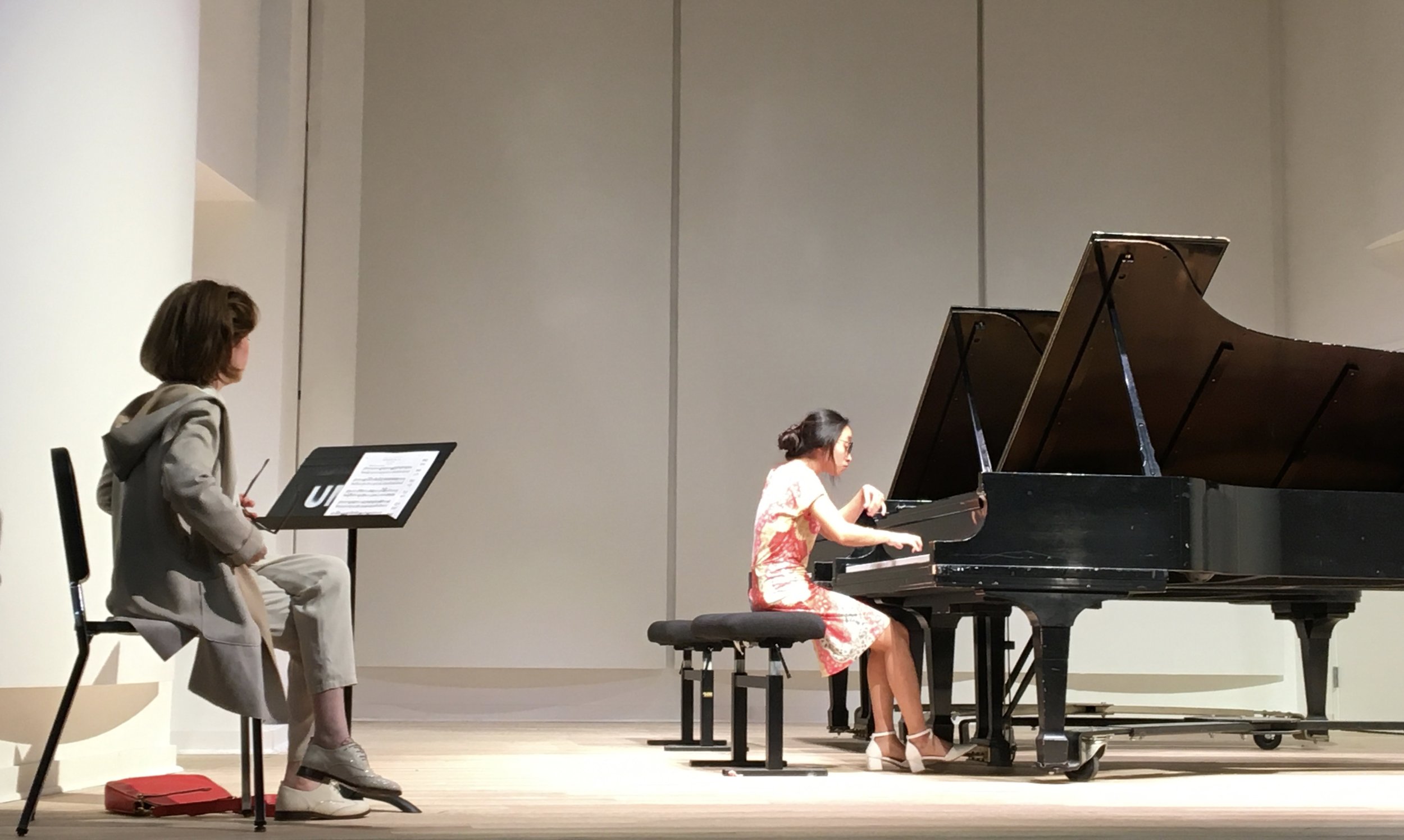Original image of Anne-Marie McDermott monitoring a student’s performance at White Recital Hall by There Stands the Glass.
Music lovers within my demographic- white, male, middle-aged and Midwestern- recently commemorated the fortieth anniversary of the release of R.E.M.’s Murmur with rhapsodic social media posts. I also loved Murmur. Paying $1.02 to attend an R.E.M. concert at the Uptown Theater on May 30, 1983, still seems like the deal of a lifetime.
That said, it’s been more than 25 years since I’ve listened to Murmur. Having fully absorbed the music in the 1980s, I’ve felt no need to revisit the album. Expanding the horizons of my knowledge has always excited me far more than wallowing in the familiar. Chamber music- a form that until recently was entirely foreign to me- has provided many of my kicks of late.
Watching Anne-Marie McDermott alternately encourage and scold three young pianists at Grant Recital Hall yesterday blew my mind. Almost everything the famed musician said in response to their performances of compositions by Joseph Haydn, Ludwig van Beethover and Camille Saint-Saens acted as an enlightening "Catapult".








